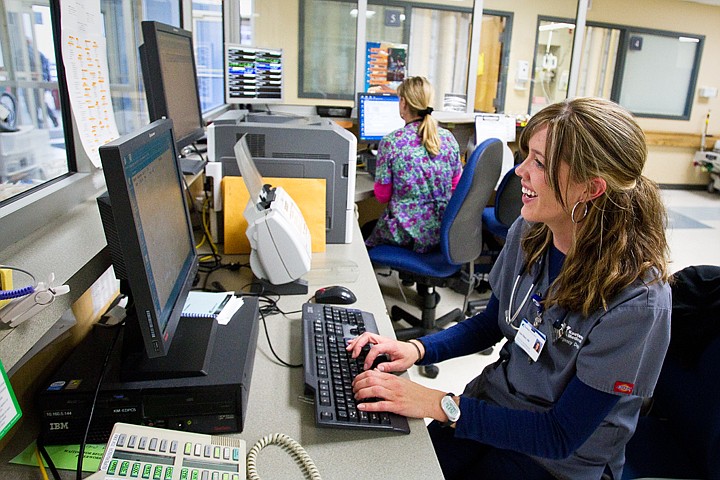Solutions, not slogans
Tom Hasslinger | Hagadone News Network | UPDATED 15 years, 3 months AGO
COEUR d'ALENE - Kootenai Health will spend $40 million providing health care services for people who aren't insured or otherwise can't afford it this year.
Health care - a hot political topic lately - needs fixing, a panel of hospital and insurance officials said Tuesday.
But taking out the partisan debate, North Idaho is taking steps to implement changes in the way medical information is shared between hospitals and physicians that could cut costs for patients and providers.
"It's nice that the rest of Idaho can look to what happened here as a success - that success didn't happen overnight," said Sen. John Goedde, R-Coeur d'Alene, among the hundreds of legislators wrapping up the North Idaho tour Tuesday with a discussion on cutting health care costs across the state. "At least we can wave the flag up here and say, 'this is how it worked with us,' and that's important."
Tough topic, but North Idaho Health Network's presentation didn't focus on the national scale. Instead, it presented the state representatives with a sample of North Idaho's regional success implementing electronic data sharing between hospitals across the five northern counties.
The name of the game is to quickly share patient information between hospitals, physicians, urgent care units and other facilities. With quicker transfers, medical providers work together to ensure patients are treated on evidence-based care, with less chance of them being skipped, diagnosed twice, inaccurately, or tested unnecessarily.
Those latter steps can lead to bigger-than-needed bills for both patients and insurance providers. A lack of regular check ups often ends up in a patient seeking treatment in an emergency room. Expensive and, at times, preventable.
"In the long run it will save money," said Tom Legel, KMC vice president of finance and information systems. "It's a lot safer, and offers a lot better care for our patients."
KMC began sharing electronic data with 36 joint partners in 2000, including in Washington. In 2008, it joined the Health Data Exchange, which is a federal program states are trying to incorporate to share files across borders. North Idaho Health Network is a local organization that has helped coordinate alliances with the data sharing method locally.
Hospitals in Benewah, Bonner and Boundary counties should be fully on board next year.
It isn't a quick-fix solution. But the coordination is also an incentive for insurance providers,
"It really is communities coming together," said Scott Kreiling, Regis Blue Shield of Idaho president. "We can't do this alone."
Donald Chisholm presented the North Idaho model to legislators and how NIHN has helped get insurance companies involved. Formed in 1994, NIHN has saved communities here more than $21 million in insurance premiums alone from the coordinated pooling.
"Nobody has all the answers," he said, of the overall goal to fix health care costs. But "the status quo isn't working."
State to state information sharing could be the future on the national scene. Meantime, a local model could be ready to take off in the northern part of the state.
"It's one of the solutions," said Rep. Tom Loertscher, R-Bone, after the presentation. "We have to go through a lot of hoops with the federal government. It's one of the problems, that's why I like this a lot."
ARTICLES BY TOM HASSLINGER
Hydro races return to area
COEUR d’ALENE — Lake Coeur d’Alene is shining like a diamond this weekend.
Live After 5 to debut in downtown Cd'A
Free summer concert venue to entertain on Wednesday evenings
COEUR d'ALENE - Tyler Davis is a musician himself, but he says he won't take the stage.

Pushing aside the anger
Darleen Haff was sixth woman admitted to UGM program in Cd'A
COEUR d'ALENE - Darleen Haff first kicked her drug habit by replacing cocaine with alcohol.

